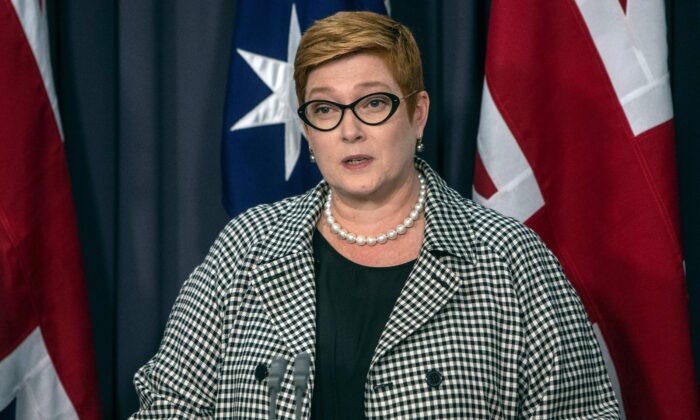McConnell: Senate Will Vote Next Week Confirm Barrett to Supreme Court
U.S. Defense Secretary Mark Esper welcomed Australia’s decision to participate in military exercises in the Indo-Pacific region together with India, Japan, and the United States.
Australia’s Minister for Foreign Affairs Marise Payne sent on Monday a letter to Australian Defense Minister Linda Reynolds, stating that the country accepted India’s invitation to join military Exercise MALABAR 2020 in November.
“The exercise will bring together four key regional defense partners India, Japan, the United States, and Australia,” Payne said in the letter, adding that it will contribute to enhancing regional security and stability in the Indo-Pacific and increase the capability of the Australian military.
The joint exercises will continue to build the strategic partnership between India and Australia which was formed based on the agreement made in June by Australian Prime Minister Scott Morrison and Indian Prime Minister Narendra Modi, she added.
Reynolds, in a statement, said the exercises are “key to enhancing Australia’s maritime capabilities, building interoperability with our close partners, and demonstrating our collective resolve to support an open and prosperous Indo-Pacific.”
MALABAR Exercise
 A US Navy crewman pulls a fuel pipe across the deck of USS Kitty Hawk (CV63) aircraft carrier during a Malabar exercise in the Bay of Bengal on Sept. 7, 2007. (Deshakalyan Chowdhury/AFP via Getty Images)
A US Navy crewman pulls a fuel pipe across the deck of USS Kitty Hawk (CV63) aircraft carrier during a Malabar exercise in the Bay of Bengal on Sept. 7, 2007. (Deshakalyan Chowdhury/AFP via Getty Images)The Malabar naval exercise began in 1992 as a training event between the United States and India. Japan joined it in 2015 and Australia last participated in 2007.
The exercise was conducted off the coast of Guam in the Philippine Sea in 2018 and off the coast of Japan in 2019. This year’s drills are likely to be held in the Bay of Bengal and the Gulf, India’s defense ministry has said. Dates have not yet been confirmed.
It will be the first time that the United States, India, Japan, and Australia—the informal grouping known as the Quad—have participated in a joint military exercise of this size.
India, which is locked in a military stand-off on the disputed land border with China, hopes the expansion of the exercise will contain what it sees as Beijing’s intrusion into its territory, analysts say.
Why Australia Joined MALABAR
According to the U.S. Navy Institute, the Chinese regime has stepped up aggressive activity in the Indo-Pacific, which is not limited to People’s Liberation Army Navy warships but also from the Chinese coast guard, fishing fleets, and commercial ships.
Dr. Jagannath Panda, a research fellow and center coordinator at the India-based Manohar Parrikar Institute for Defense Studies and Analyses, wrote that Australia, which has been economically dependent on China, stopped its participation in the Malabar exercises in 2007 after the Chinese regime’s strongly opposed it.
Panda said that the three other Quad members—India, Japan, and the United States—excluded Australia from the exercise to avoid the appearance of a Quad exercise and as an alliance against China.
Over the years however, the policy of appeasing China has proved ineffective as the Chinese regime threatened Australia with trade bans because it demanded an investigation into the origins of the CCP (Chinese Communist Party) virus pandemic, Panda wrote for the Center for Strategic and International Studies.
Reuters contributed to this report.
Focus News: Australia Joins USA, India, and Japan in Military Exercise in Indo-Pacific
